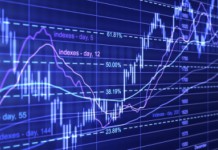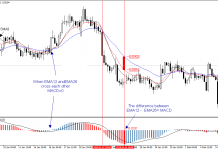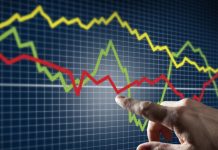Recently a friend got in touch and was keen to ‘make it’. He was sick of being in the same dead-end job. He then said that he heard that many people make money trading forex; therefore, he would like to “jump in”. Notably, he doesn’t know anything about trading. He just expected to invest all his savings and become rich in a “few weeks”.
Like with anything in life, you need training and a strategy. The fact is that a majority of forex traders fail to turn a profit. In this article, I will take you through the same strategies top traders use. Therefore, you will finish with the tools to make profitable trades on a consistent basis.
Know a lot about a little
The factors which affect the dollar are different from the ones which affect the sterling. The same goes for every currency. Consequently, it is better to focus on a few currency pairs.
Fundamental analysis is the monitoring of economic data such as unemployment rates and interest rates. Mastery of fundamental analysis puts you ahead of most traders. You can set up your trades, and make bold predictions, days or even weeks in advance. You can get the data needed for fundamental analysis from sites such as the Office for National Statistics (UK) and the Bureau of Labor Statistics (US).
A big mistake traders make is to read news reports as part of their fundamental analysis. The news isn’t always impartial, and sometimes hyperbole is used. Data allows for comparison. For instance, if the trends show that unemployment is set to go up, you could predict the effect this might have on public spending and currency value.
Weekend analysis
It is rare for traders to conduct analysis when the market is closed. This is one of the actions which separates top traders from everyone else. The weekend is an opportunity to go through your predictions from the trading week. Break down your wins and losses. The ultimate aim is to eliminate guesswork. Each trade should be backed up with data. Sometimes unexpected events occur. However, analysis helps to give you an edge.
Risk management
We are emotional beings. The result of your last trade – good or bad – can affect risk tolerance. We are also impatient. Most people want to become successful quickly. As a result, they trade many times in a minute. This doesn’t give them enough time to study the data.
As a forex trader, you try to find the best opportunities to invest your money. There is no time limit, and you aren’t under any obligation to trade at any given time. Like a hunter, you must be patient.
Risk management requires logical thinking. “Is this the best time for me to invest or could another opportunity present itself?”. Traders who guess might as well be at the casino. They might make a profit in the short term, but guessing isn’t an effective long-term strategy.
Technical analysis
Technical analysis can be done manually using a pen and paper or by using a Forex robot. Automated software saves a lot of time. You can set the parameters and get the information you need to make a data-backed prediction. On the other hand, some traders prefer to do it by hand because it makes them think through their trades more carefully.
When you combine fundamental analysis with technical analysis, you have enough information to trade intelligently. Notably, the information you need is freely available. It is how you use it which counts.
Validation
Trading and validation go hand in hand. For instance, let’s say you predict that the dollar will go down 5% over the next 7 days. Now, you need to find data which validates that prediction. The aim is to ask yourself “why?” at every stage constantly. One way to do this is to seek validation in other markets. For instance, oil prices and the dollar are interlinked. The higher the dollar the lower the cost of oil.
Notably, oil prices have several growth drivers. For instance, stable leadership in key sectors such as the Middle East and Nigeria can affect the oil price. A conflict which disrupts the distribution of oil can cause oil prices to rise. Knowing this, you need to use socio-economic stability as a factor when analysing a trade.
The financial markets are intertwined like the threads on a rope. Finding the key links and analysing them takes time; however, it could be a key driver for long term profit.
Consistency
There are many strategies in courses and books. Therefore, it is very easy to jump from one shiny new strategy to the next. Just because it works for someone, doesn’t mean it will work of you. The best traders always develop a unique strategy. They might make modifications to it over time, but they don’t just take someone else’s.
Fortunately, most brokers offer demo accounts. Therefore, you can create a strategy and test it out without spending any money. Modify it until it is profitable. High level trading looks boring because you repeat the same process. The moment you veer off, emotions come into play, and that is never a good strategy.
Final thoughts
To conclude, I hope you found this article helpful. Detailed analysis is a crucial part of an effective forex trading strategy. However, money management is also vital. Only trade money which you are willing to lose. Arguably, trading is a fast way to make and lose money. In my opinion, you shouldn’t borrow money to trade. If you don’t have the money, work overtime or start a low-cost service business.
You can make a life-changing sum of money trading forex. However, equip yourself with the knowledge and mentality required first.








![How to install MetaTrader 4 / 5 on MacOS Catalina? Simple way. [VIDEO]](https://comparic.com/wp-content/uploads/2020/07/mt4-os-218x150.jpg)









